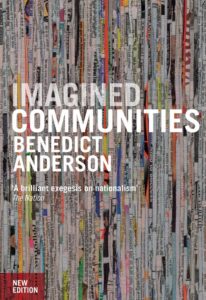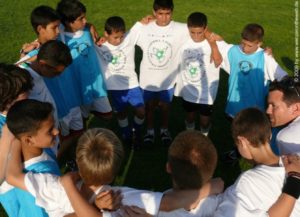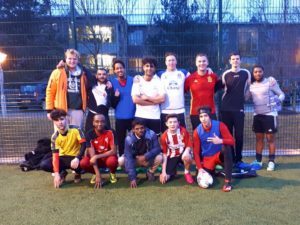Dr Jack Sugden
 In 1983 Benedict Anderson wrote ‘Imagined Communities’, a book that pointed out, among other things, that the communities, towns, cities and especially nations in which we live are not actually real. Although they might feel real to us, part of our lives, our identities, have you ever actually seen an England? Touched a Manchester? The point I make here, in an admittedly abstract way, is that we dwell in a world in which we are divided by many categories and identity hooks that are essentially made up.
In 1983 Benedict Anderson wrote ‘Imagined Communities’, a book that pointed out, among other things, that the communities, towns, cities and especially nations in which we live are not actually real. Although they might feel real to us, part of our lives, our identities, have you ever actually seen an England? Touched a Manchester? The point I make here, in an admittedly abstract way, is that we dwell in a world in which we are divided by many categories and identity hooks that are essentially made up.
The United Kingdom only exists because we all agree it does, just as we agree to follow, uphold and even celebrate its laws and culture. If we were to wake tomorrow having forgotten the UK, it might be a nightmare in terms of law and order, but we may also feel free, albeit isolated and alone. As though these categories and labels dive us they also unite us, giving us commonalities that we share, and which make us feel safe, like we belong. It is this exact feeling of collective national consciousness that captivates the nation during a royal wedding, at times of national crisis, or during the football world cup, the last two being much the same.

In terms of sport, from growing up in Belfast during the “troubles” I was witness to bitter and divisive nature of sport, but also, fleetingly, its capacity to cross the sectarian divide through a football team made up of both Protestants and Catholics called ‘Belfast United F.C.’ I left Belfast at 10 but returned for a Masters in Ethnic Conflict at Queens while working for ‘Football for Peace International’; an NGO that used football to forge cross community partnerships in Israel/Palestine through building ‘Imagined Communities’ through sport. This formed the basis of my research and the idea which has taken fruit all over the world in hundreds of sport for peace projects. I have personally been involved in researching sport in divided societies in Israel/Palestine, South and West Africa, Northern Ireland and Fiji. Diverse locales, but connected in the privileged place that sport has in culture and society.
In Israel/Palestine for example, despite vitriol on both sides of the Jewish/Arab divide, both communities share the love of football. While facilitating and coordinating projects in Jerusalem I bore witness to Arab and Jewish kids (11-15) playing together, at the beginning very reluctantly, but eventually forging real friendships realised and augmented through sport. This is not necessarily about building lasting friendships across ethnic divides, but about humanisation – the realisation that ‘the other’ is not so different after all. This is difficult to achieve, as peacebuilding discourse and research will attest. Yet the potential of sport in breaking down barriers is now well known, and as many areas of the globe face urgent questions around migration, resettlement and ‘integration’ – however it may look.

At Edge Hill we are beginning to apply the same ideas to help find solutions to some of these questions. By organising football games between and among refugees that have been resettled from a collection of nations, such as Eritrea, Iran, Syria, Iraq…along with students and staff from Edge Hill. What we have begun is a process of mutual learning and understanding that can be facilitated through sport. For the refugees these games are something to do that costs nothing: many have to live on less than £5 per day. It is also a chance for them to get to know young people from the North West and work on their English. Opportunities for both are in short supply.
This process is not one way however, it is dialogical, in exposing student and staff to refugees with diverse backgrounds and stories. We hope to improve their cultural capital and global knowledge. From a sports perspective, students are exposed to the potential of sport outside of its more traditional roles in strength and conditioning, for example. Educators, sociologists, historians and so on, can gain access to diverse individuals and life histories that inform their development as teachers, scholars and people.
Beginning a new academic year we hope to expand the number of games (last year we managed 10) and the scope of those involved (we see the inclusion of women as a key priority). All with the continued aim to build more inclusive and real community at Edge Hill.
If you’d like to get involved in this programme, please contact [email protected]
Further reading: ‘Anyone for football for peace? The challenges of using sport in the service of co‐existence in Israel’
Football for peace website
